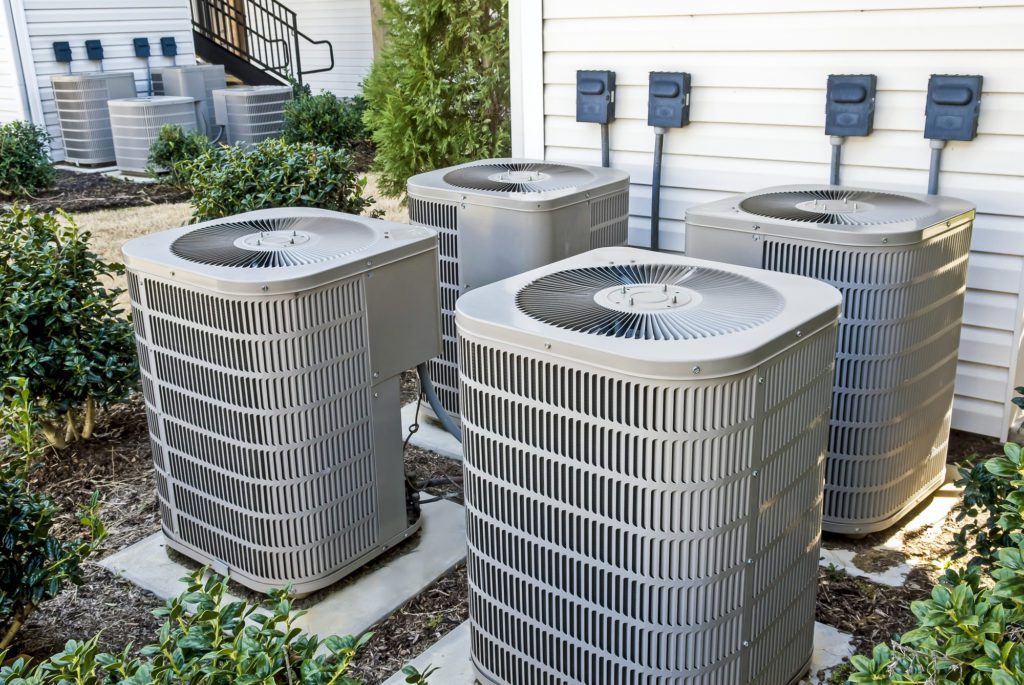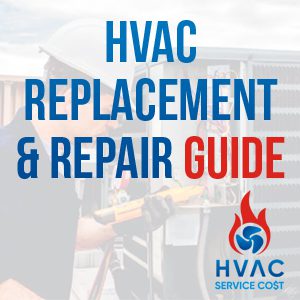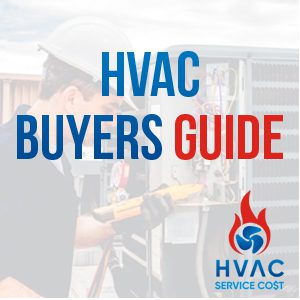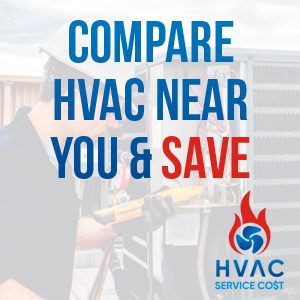
Maximizing Your HVAC Investment: Tips for Large Homeowners
Maintaining a comfortable living environment in a large home can be challenging, especially when it comes to HVAC (Heating, Ventilation, and Air Conditioning) services. HVAC costs can quickly add up, especially for larger homes, but there are ways to maximize your investment and keep your home comfortable without breaking the bank. In this blog, we’ll discuss tips for large homeowners to make the most of their HVAC investment.
COMPARE QUOTES NOWRegular Maintenance
Regular maintenance is crucial to ensure that your HVAC system is running efficiently and effectively. Regular maintenance includes tasks such as changing air filters, cleaning the ducts, and inspecting the system for any signs of wear and tear. This can help prolong the life of your HVAC system, prevent costly breakdowns, and ensure that your home is comfortable year-round.
Invest in Energy-Efficient Systems
Investing in energy-efficient HVAC systems can help save money on utility bills while also reducing your carbon footprint. Look for HVAC systems with high SEER (Seasonal Energy Efficiency Ratio) ratings, which indicate how efficiently the system can cool your home. Higher SEER ratings mean more energy-efficient systems, which can save you money on your utility bills in the long run.
Programmable Thermostats
Programmable thermostats allow you to control the temperature of your home based on your schedule. This means that you can set your HVAC system to run less when you’re away from home, helping you save money on your utility bills. Additionally, programmable thermostats can be customized to suit your specific needs, ensuring that your home is always at the perfect temperature.

Proper Insulation
Proper insulation is essential for large homes, as it can help keep your home comfortable year-round while reducing the workload on your HVAC system. Look for areas in your home that may need additional insulation, such as the attic or crawl spaces, and consider upgrading the insulation as needed.
Air Sealing
Air sealing your home can help prevent air leaks, which can cause your HVAC system to work harder than necessary. Air sealing involves sealing gaps and cracks in your home’s walls, floors, and ceilings to prevent air leaks. This can help reduce your energy bills and prolong the life of your HVAC system.
COMPARE QUOTES NOWMaximizing your HVAC investment in a large home requires a combination of regular maintenance, energy-efficient systems, programmable thermostats, proper insulation, and air sealing. By following these tips, you can keep your home comfortable year-round while also saving money on your utility bills. Be sure to work with a reputable HVAC service provider to ensure that your system is properly maintained and optimized for your specific needs.
How HVAC Costs May Differ Based on the Size of Your Home
The size of your home can have a significant impact on the cost of HVAC services. Larger homes require more extensive HVAC systems to maintain a comfortable living environment, which can drive up the cost of installation, maintenance, and repair services. In this section, we’ll discuss how HVAC costs may differ based on the size of your home.

Square Footage
One of the main factors that can impact the cost of HVAC services is the square footage of your home. Larger homes require more extensive HVAC systems, which can increase the cost of installation, maintenance, and repair services. As a general rule, you can expect to pay the following HVAC costs based on the square footage of your home:
- Homes up to 1,000 square feet: $2,500 – $7,500
- Homes between 1,000 and 2,500 square feet: $7,500 – $12,500
- Homes between 2,500 and 3,500 square feet: $12,500 – $17,500
- Homes 3,500 and 4,000 square feet: $17,500 or more
Number of HVAC Zones
Another factor that can impact the cost of HVAC services is the number of HVAC zones in your home. HVAC zones allow you to control the temperature of different areas of your home independently, which can help save energy and reduce HVAC costs. However, installing multiple HVAC zones can be more expensive than installing a single-zone system. As a general rule, you can expect to pay the following HVAC costs based on the number of zones in your home:
- Single-zone systems: $2,500 – $7,500
- Two-zone systems: $7,500 – $12,500
- Three-zone systems: $12,500 – $17,500
- Four-zone systems: $17,500 or more
Type of HVAC System
The type of HVAC system you choose can also impact the cost of HVAC services. For example, a central air conditioning system can be more expensive to install than a window air conditioning unit. However, central air conditioning systems can be more energy-efficient, which can save you money on your utility bills in the long run. As a general rule, you can expect to pay the following HVAC costs based on the type of system:
- Window air conditioning units: $100 – $500 per unit
- Portable air conditioning units: $200 – $1,000 per unit
- Ductless mini-split systems: $3,000 – $10,000
- Central air conditioning systems: $5,000 – $15,000

The size of your home can have a significant impact on the cost of HVAC services. Be sure to consider factors such as square footage, the number of HVAC zones, and the type of HVAC system when budgeting for HVAC services. By understanding the costs associated with HVAC services, you can make informed decisions that help you maximize your investment and keep your home comfortable year-round.
What is the Best Type of HVAC System for Large Homes?
Choosing the best type of HVAC system for a large home can be challenging. There are several factors to consider, including energy efficiency, cost, and the specific needs of your home. In this section, we’ll discuss the best types of HVAC systems for large homes.
Central Air Conditioning System
Central air conditioning systems are a popular choice for large homes because they can cool multiple rooms simultaneously. They work by distributing cool air through a network of ducts, which can be customized to suit the layout of your home. Central air conditioning systems can be expensive to install, but they are energy-efficient and can help save money on your utility bills in the long run.
Ductless Mini-Split System
Ductless mini-split systems are a great option for large homes that do not have existing ductwork. They work by delivering cool air directly to each room through a wall-mounted unit, eliminating the need for ductwork. Ductless mini-split systems are energy-efficient and can be customized to suit the specific needs of your home. They can also be more expensive to install than central air conditioning systems.

Zoned HVAC System
Zoned HVAC systems allow you to control the temperature of different areas of your home independently. This can be a great option for large homes that have different cooling needs in different areas. Zoned HVAC systems work by using dampers in the ductwork to control the flow of air to different zones. They can be expensive to install, but they are energy-efficient and can help save money on your utility bills.
Geothermal HVAC System
Geothermal HVAC systems are a renewable energy option that can be a great choice for large homes. They work by using the constant temperature of the earth to cool and heat your home, making them highly energy-efficient. Geothermal HVAC systems can be expensive to install, but they can help save money on your utility bills in the long run.
Choosing the best type of HVAC system for a large home requires careful consideration of factors such as energy efficiency, cost, and the specific needs of your home. Central air conditioning systems, ductless mini-split systems, zoned HVAC systems, and geothermal HVAC systems are all great options for large homes, each with its own advantages and disadvantages. Be sure to work with a reputable HVAC service provider to determine the best HVAC system for your specific needs and budget.
COMPARE QUOTES NOW


Leave a Reply